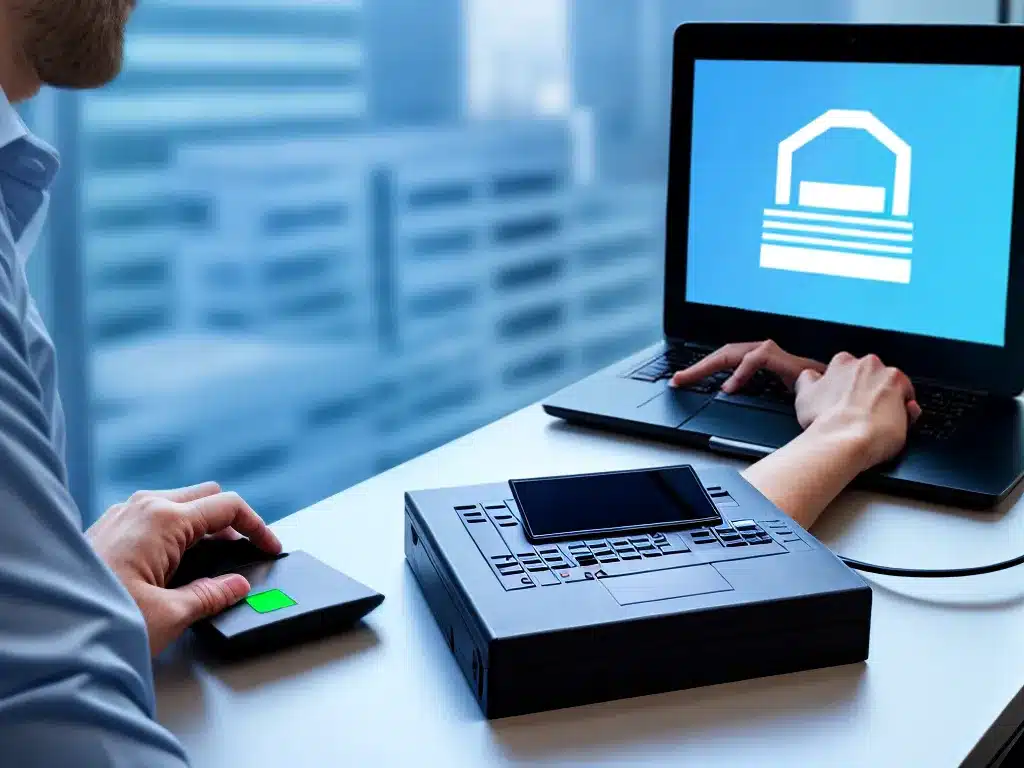
As a small business owner, I know how critical it is to keep my company’s data protected. Losing important files like documents, spreadsheets, emails, and more could be devastating. That’s why implementing a remote backup solution is one of the smartest investments I’ve made.
Why Businesses Need Remote Data Backup
In today’s digital world, data loss can happen easily and when you least expect it. Hardware failures, software crashes, cyber attacks, human errors, and natural disasters can all cause permanent data loss. Without proper backups, recovering lost files may be impossible. For a business, this can lead to major financial consequences and in some cases, even close down the company.
Here are some key reasons why every business needs a remote data backup solution in place:
-
Protect against localized failures – Onsite backups are vulnerable to equipment failure, theft, fire, floods, and other disasters at your physical location. Remote backups store data offsite to ensure access.
-
Meet compliance regulations – Industries like healthcare and financial services often must meet data backup compliance requirements. Remote backup provides accountability.
-
Enable disaster recovery – Should the worst happen, remote backup ensures you can quickly recover critical systems, applications, and information.
-
Limit downtime – Backing up locally can mean hours or days of disrupted operations if data is lost. Remote backup generally allows faster data recovery.
-
Gain peace of mind – Never worry about losing access to valuable business data. Remote backup provides an always-on layer of protection.
Choosing an Effective Remote Backup Solution
With so many backup options available, it’s important to find a remote solution tailored to your business’s needs and budget. Here are key factors to consider:
Data Security
Data security is a top priority. Look for 256-bit AES encryption at minimum to protect backup data. Multifactor authentication adds another layer of security.
Backup Frequency
Backup frequency determines how recent your recoverable data is. For most businesses, daily incremental backups combined with weekly full backups is recommended.
Storage Capacity
Your remote backup solution needs ample storage to handle all critical data. Calculate current needs and leave room for future growth. The provider should offer flexible storage options.
Backup Performance
Fast backup and restoration speeds limit downtime. Prioritize solutions touting high data transfer rates and rapid restore features.
Backup Locations
For maximum protection, choose a remote backup provider with backup locations that are geographically separated from your business. This guards against regional disasters.
Technical Support
Find a provider that offers 24/7 technical support. Backup issues can happen anytime, so always-available assistance is vital.
Top Remote Data Backup Solutions for Business
Now that we’ve covered key selection criteria, here are leading remote backup solutions that I recommend considering:
Backblaze
- Easy automated backup with unlimited storage.
- Backup speed up to 100 Mbps.
- File versioning up to 30 days.
- Mobile app to access files remotely.
- Restores shipped overnight on a USB or hard drive.
IDrive
- includes both cloud backup and physical server backup.
- Scalable storage and fast transfer speeds.
- AES 256-bit encryption and private key encryption.
- Device sync and file sharing capabilities.
- Backs up documents, photos, videos, emails, and desktop files.
Acronis
- Blockchain-based file certification for tamper protection.
- Artificial intelligence to prevent ransomware attacks.
- Flexible hybrid deployment options.
- Fast restoration of entire systems or individual files.
- Advanced reporting tools.
Carbonite
- Automated and continuous backup.
- Remote file access from web and mobile apps.
- Alerts for any potential problems detected.
- Optional Cyber Plus plan adds malware and ransomware protection.
- Affordable pricing options.
Final Thoughts
Implementing reliable remote backup means no more worrying about data loss. Be sure to consider factors like security, frequency, capacity, speed, location redundancy, and support when choosing your solution. Take time to research providers that fit both your feature needs and budget.
With the right remote data backup solution in place, you can rest assured your business data is protected. This provides tremendous peace of mind. Should disaster strike, you’ll be equipped to quickly recover critical files and maintain business continuity.












